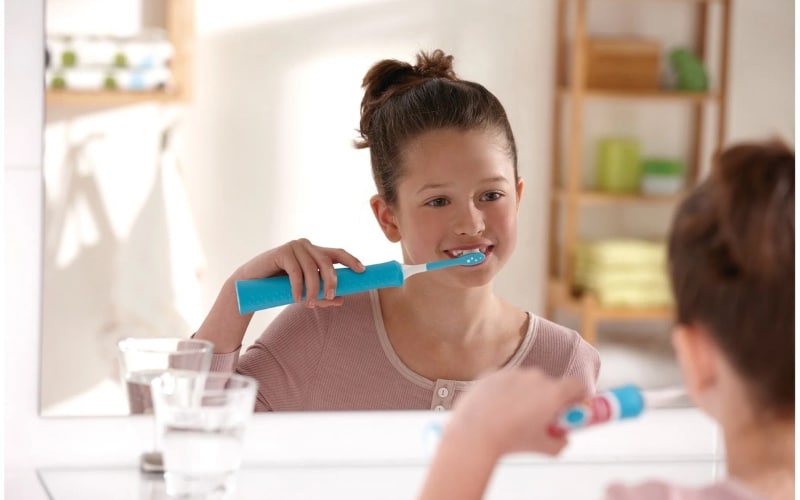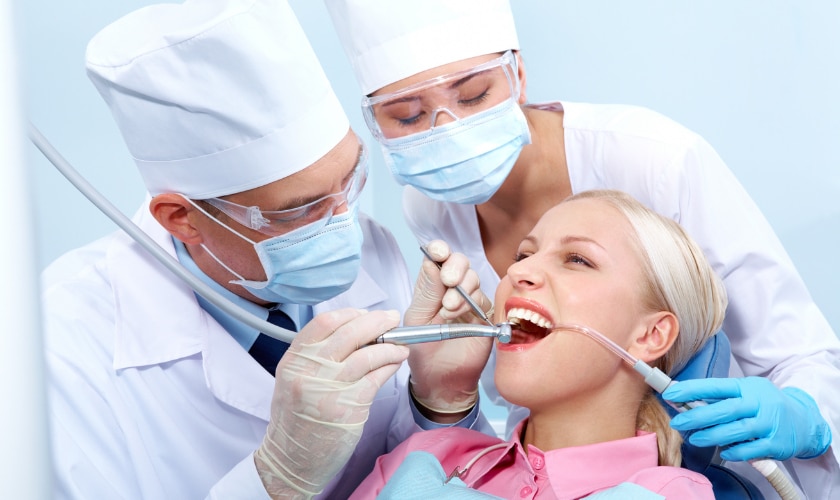A common issue that many people encounter at some point in their lives is bad breath. Although a number of things, such as food, dehydration, and underlying medical disorders, contribute to it, poor dental hygiene is one of the main causes. Since electric toothbrushes are becoming more and more popular in dental care, many people are curious if they may improve foul breath.
This blog will discuss how well electric toothbrushes operate, how successful they are in preventing bad breath, and how to get the most out of them.
What Causes Bad Breath?
Bad breath can stem from multiple sources, including:
- Bacteria in the Mouth: The most common cause of bad breath is the presence of bacteria in the mouth, which produce sulfur compounds as they break down food particles and dead cells.
- Dry Mouth: Saliva plays a crucial role in keeping your mouth clean. A decrease in saliva production, often due to dehydration or certain medications, can lead to bad breath.
- Food Choices: Certain foods, such as garlic, onions, and spicy dishes, can contribute to bad breath due to their strong odors.
- Dental Issues: Cavities, gum disease, and other dental problems can harbor bacteria that produce foul-smelling compounds.
- Health Conditions: Some medical conditions, such as sinus infections, diabetes, and gastrointestinal issues, can lead to persistent bad breath. Incorporating home care dental routines can further enhance oral cleanliness and breath freshness.
The Role of Oral Hygiene
Maintaining good oral hygiene is vital in preventing and eliminating bad breath. Brushing your teeth at least twice a day, flossing daily, and using mouthwash can significantly reduce bacteria buildup and food particles that contribute to halitosis.
How Electric Toothbrushes Work
Electric toothbrushes utilize oscillating or rotating brush heads to effectively remove plaque and debris from teeth and gums. Here’s how they differ from manual toothbrushes:
- Superior Plaque Removal: Studies suggest that electric toothbrushes can remove up to 21% more plaque than manual toothbrushes.
- Consistent Brushing Technique: Many electric toothbrushes have built-in timers that ensure you brush for the recommended two minutes, helping you maintain a thorough cleaning routine.
- Bristle Movement: The rapid bristle movement of electric toothbrushes can reach areas that may be challenging to clean manually, providing a more comprehensive clean.
How Do They Bring Benefits To Your Bad Breath Problem?
- Improved Plaque Control: Electric toothbrushes reduce the amount of bacteria in the mouth that can contribute to bad breath by removing more plaque.
- Effective Gum Health: Many electric toothbrushes feature modes specifically designed for gum care, helping to reduce gum inflammation and improve overall gum health, which can also combat bad breath.
- User-Friendly Features: Many electric toothbrushes come with pressure sensors that alert users if they are brushing too hard, preventing damage to the gums and ensuring effective cleaning.
- Enhanced Cleaning of Hard-to-Reach Areas: The design of electric toothbrushes allows for better access to difficult spots, such as the back molars, which can harbor bacteria.
Proper Use Of Electric Toothbrushes To Combat Bad Breath
1. Choose The Right Electric Toothbrush
When selecting an electric toothbrush, consider features such as:
- Soft Bristles: Opt for a toothbrush with soft bristles to avoid damaging your gums while effectively cleaning your teeth.
- Multiple Cleaning Modes: Look for a toothbrush with modes for sensitive teeth, gum care, or deep cleaning.
- Timer Function: A built-in timer can help ensure you brush for the recommended two minutes.
2. Maintain Proper Brushing Technique
- Brush Twice Daily: Make sure to brush your teeth at least twice a day for optimal plaque removal.
- Use the Right Angle: Hold the brush at a 45-degree angle to your gums and use gentle circular motions.
- Don’t Forget Your Tongue: Bacteria can accumulate on your tongue, so use the back of your toothbrush or a tongue scraper to clean it.
3. Complement with Flossing and Mouthwash
Electric toothbrushes are effective, but they work best when used in conjunction with:
- Daily Flossing: Flossing removes food particles and plaque from between your teeth, where the brush may not reach.
- Mouthwash: Using an antibacterial mouthwash can help kill bacteria that contribute to bad breath, providing an additional layer of protection.
4. Stay Hydrated
Drinking enough water throughout the day helps maintain saliva production, which is essential for neutralizing acids and washing away food particles. If you experience dry mouth, consider using saliva substitutes or mouthwashes designed for dry mouth.
5. Regular Dental Checkups
Regular visits to the dentist for checkups can help identify any underlying issues that may be contributing to bad breath.
In the end, electric toothbrushes can indeed help combat bad breath by improving plaque removal and enhancing overall oral hygiene. Switching to an electric toothbrush is a step toward a fresher breath and a healthier smile.
So, if you haven’t made the switch yet, now might be the perfect time to consider the benefits of electric brushing as part of your dental care regimen!


